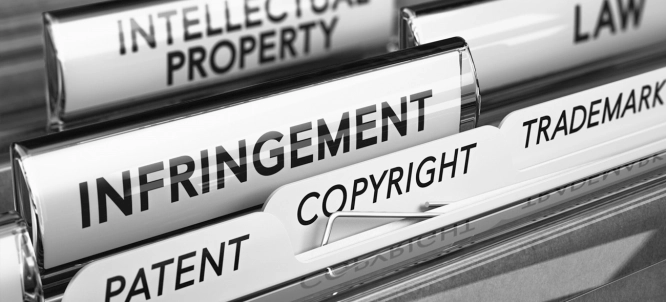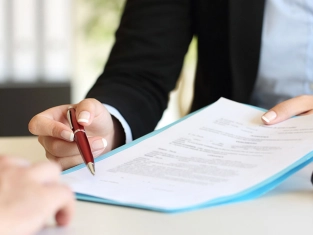by PushtoLearn
Unit 11 - Intellectual Property
Table of Contents
Unit 11, International Legal English Exercises and Flashcards
These exercises focus on Unit 11, International Legal English
Wordlist for Unit 11, International Legal English
|
Word |
Definition |
Example |
|
commercial exploitation |
The act of utilizing or profiting from intangible property rights, often for business purposes |
The company's successful commercial exploitation of its intellectual property rights generated substantial revenue |
|
intangible property rights |
Legal rights associated with non-physical assets, such as patents, trademarks, and copyrights |
Intangible property rights, such as patents and copyrights, are essential for protecting intellectual creations |
|
patent |
A legal grant that provides exclusive rights to inventors for their inventions or innovations |
The inventor filed a patent application to protect their innovative product design from unauthorized use |
|
trademark |
A distinctive symbol, logo, word, or phrase used to identify and protect the brand of goods or services |
The trademark of the famous brand is instantly recognizable due to its distinctive logo and packaging |
|
copyrights |
Legal protections granted to authors and creators for their original literary and artistic works |
Authors and artists often retain copyrights to control how their creative works are used and reproduced |
|
trade secrets |
Confidential and valuable business information, practices, or knowledge that provides a competitive advantage |
Companies guard their trade secrets closely to prevent competitors from gaining access to valuable proprietary information |
|
design rights |
Legal protections for the unique design or appearance of a product, often related to industrial or product design |
Design rights protect the unique visual appearance of a product or object, ensuring its exclusivity in the market |
|
passing off |
A legal action taken to prevent others from misrepresenting their goods or services as those of another |
The legal action was taken against a competitor for engaging in unfair competition through passing off their product as ours |
|
monopoly right in an invention |
Exclusive rights granted to inventors for a specified period, allowing them to control the invention's use and distribution |
A patent grants a monopoly right in an invention, allowing the patent holder exclusive control over its use |
|
novel |
A quality of being new, original, or previously unknown in the context of intellectual property or inventions |
To obtain a patent, the invention must be novel and not previously disclosed to the public |
|
non-obvious |
A requirement for patents, meaning that an invention should not be obvious to someone skilled in the relevant field |
In addition to being novel, an invention should also involve a non-obvious step to qualify for patent protection |
|
holder |
The individual or entity that possesses and has legal rights over intellectual property, such as patents or copyrights |
The holder of the copyright has the exclusive right to reproduce and distribute the work as they see fit |
|
exclusive right |
The sole and exclusive legal authority to use, distribute, or benefit from a particular intellectual property |
Trademark registration grants the owner the exclusive right to use the mark in connection with their products |
|
cybersquatting |
Registering, using, or selling domain names with the intent to profit from someone else's trademark or brand |
Cybersquatting involves registering domain names similar to well-known brands with the intent to profit from their reputation |
|
unauthorised use |
The utilization of intellectual property without proper permission, authorization, or legal rights |
The unauthorised use of the company's logo on counterfeit products led to legal action against the infringing party |
|
right of fair use |
A legal doctrine that allows limited use of copyrighted material without permission, often for purposes like criticism, commentary, or education |
Fair use allows limited use of copyrighted material without permission, typically for purposes like criticism or education |
|
infringement of rights |
Violation of intellectual property rights, including patents, copyrights, trademarks, or trade secrets |
The cease and desist letter alleged infringement of our intellectual property rights and demanded immediate action |
|
injunction |
Court orders that require or prohibit specific actions, often used to prevent further infringement of intellectual property rights |
The court issued an injunction to prohibit the defendant from further use of the patented technology pending the trial |
|
to state unequivocally |
to say clearly, without any doubt |
The contract states unequivocally that any breach will result in severe legal consequences for the parties involved |
|
to be within the public domain |
to be freely available to all and to not be protected by intellectual property rights |
Once a copyright expires, the work falls within the public domain, allowing unrestricted use by the public |
|
to review a decision |
to re-examine a court ruling |
The appellate court will review the lower court's decision to determine if any errors were made during the trial |
|
misappropriation |
taking something from someone else and using it for your own benefit |
The misappropriation of trade secrets by a former employee led to significant financial losses for the company |
|
expressly authorised |
given the legal power to do something |
The use of the copyrighted material was expressly authorised by the copyright owner in a licensing agreement |
|
provided that |
if |
The software can be used freely, provided that users comply with the terms and conditions outlined in the license |
|
shall inform |
will tell |
The company shall inform its customers of any data breaches promptly and take appropriate measures to mitigate risks |
|
proprietor |
owner |
The proprietor of the patented technology has the exclusive right to manufacture and sell products using the invention |
|
shall not involve the responsibility of |
will not be the fault of |
The company's disclaimer stated that it shall not involve the responsibility of any damages resulting from the use of the product |
|
failing this |
if this has not been done |
Failing this, the contract will be considered null and void, and both parties will be released from their obligations |
|
expiry |
the date something stops being valid or ends |
The patent's expiry date is approaching, and the company is exploring new innovations to maintain its competitive edge |
|
violate |
To breach or act against a law, rule, regulation, or legal right, often resulting in a violation or offense |
The competitor's marketing campaign appeared to violate our trademark rights by using a similar logo and brand name |
|
uphold |
To confirm or support the validity, legality, or correctness of a decision, law, or principle |
The court's decision to uphold the validity of the patent provided assurance that our intellectual property was protected |
|
affirm |
To officially declare or confirm a decision, judgment, or belief, often in a legal or formal context |
The appellate court affirmed the lower court's ruling, emphasizing that the evidence supported the initial decision |
|
enforce |
To ensure compliance with rules, laws, or agreements by using authority or legal measures to compel obedience |
The company will take legal action to enforce its copyright if any unauthorized use of its proprietary content is detected |
|
tangible |
Capable of being touched or physically perceived; often used to describe physical, concrete objects |
Intellectual property can be intangible, such as copyrights, while physical goods like machinery are tangible assets |
|
alleged |
Said to have occurred or claimed to be true, often used when the truth is disputed or unproven |
The alleged breach of contract resulted in a dispute between the parties, which required resolution through legal proceedings |
|
infringement |
To have one's rights or property violated or encroached upon |
The patent holder warned competitors that any attempt to copy the patented technology would be considered an infringement |

FAQ
What is the difference between a patent, a trademark, and a copyright?
-
A patent protects inventions and new technologies.
-
A trademark protects brand names, logos, and symbols associated with goods or services.
-
A copyright protects creative works such as books, music, films, and software.
What are trade secrets?
Trade secrets are confidential business information (e.g., formulas, processes, customer lists) that provide a competitive advantage and are legally protected against unauthorized disclosure.
What is “passing off” in intellectual property law?
Passing off occurs when someone misrepresents their goods or services as those of another business, leading to consumer confusion.
What does it mean to have a "monopoly right in an invention"?
A monopoly right in an invention gives the patent holder exclusive control over the production, use, and sale of the invention for a set period, usually 20 years.
What does “non-obvious” mean in patent law?
A patentable invention must be non-obvious, meaning it must involve a significant inventive step that is not an obvious improvement to someone skilled in the field.
What is cybersquatting?
Cybersquatting involves registering domain names that are identical or similar to well-known trademarks with the intent to profit from them unfairly.
What constitutes unauthorized use of intellectual property?
Unauthorized use refers to using, copying, or distributing someone else’s intellectual property without permission, potentially leading to infringement claims.
What is the right of fair use?
Fair use allows limited use of copyrighted material without permission for purposes such as education, commentary, news reporting, and research.
What is an injunction in intellectual property cases?
An injunction is a court order that stops someone from using or distributing protected intellectual property without authorization.
What does it mean for intellectual property to be within the public domain?
If intellectual property is in the public domain, it means it is no longer protected by copyright, patent, or trademark law and can be freely used by anyone.
What is misappropriation in intellectual property law?
Misappropriation occurs when someone wrongfully takes or uses another’s intellectual property, especially trade secrets, without permission.
What does “expressly authorized” mean in IP agreements?
Expressly authorized means that explicit legal permission has been given for specific actions related to intellectual property use.
What happens when an IP right reaches expiry?
When an IP right expires, the intellectual property enters the public domain, meaning anyone can use it without restriction.
What does it mean to enforce intellectual property rights?
Enforcing intellectual property rights involves taking legal action to protect patents, trademarks, copyrights, or trade secrets from infringement.
What is the difference between upholding and affirming a legal decision?
-
To uphold a decision means to confirm its validity in an appeal or review.
-
To affirm means to formally state that the decision is legally correct.
How is infringement of rights determined?
Infringement is determined by assessing whether unauthorized use of protected intellectual property has occurred and whether it violates the owner’s exclusive rights.

